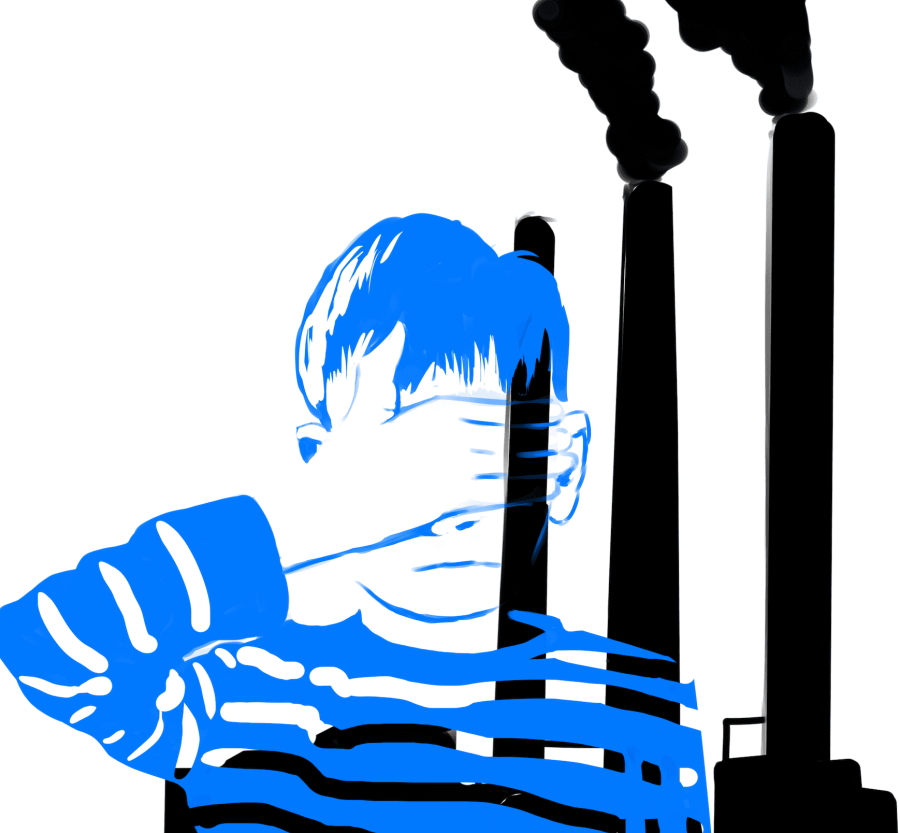While many of us may remember and may have even participated in the climate strike that was held on campus and worldwide back in September, the harsh reality is that it is easy for an issue like climate change to sink to the back of our minds after the fact. Typically people are not directly affected by climate change; thus, there is no tangible evidence to remind them. It seems illogical that people will strive for change when they cannot directly see the effects of an issue and fail to recognize the imminent threat according to.
That being said, over the course of the last few weeks, climate change seems almost inescapable. Between reports of around 17.4 million acres of land burning in Australia to 16-year-old climate change activist Greta Thunberg making headlines, it has become more and more difficult for people to overlook this global issue.
Although the issue is only making headlines now, the harsh reality is that climate change has been threatening society for a while now. According to the BBC, studies conducted by the National Aeronautics and Space Administration in 2019 report that the last decade has been the warmest yet, and temperature projections for the next five years estimate a continuous increase in temperature.
Still, some people question the relevance of increasing temperatures on society. The effects are numerous, but some of the most prominent include an increasing number of extreme weather events, ice melting, glacial retreat, and rising sea levels. However, there is still hope. While humans cannot stop the effects of global warming completely, there are countless things they can do daily to slow the process.
However, whether it is due to the circulation of fake news, denial, or lack of education, a large portion of society remains ignorant to its impact on the environment and the fast deterioration of the planet. I believe the best solution to this ignorance toward climate change is for the government to implement large-scale conservation policies that affect daily life, like the California plastic bag ban. These policies will make people think twice about their impact on the environment and encourage them to get educated. The Single-Use Carryout Bag Ban was implemented in California in 2016, and was a monumental step in terms of governmental conservation efforts. This policy taught people the dangers that single-use plastic bags pose to the environment, especially sea life, and in turn made them more self-aware of their impact. After the ban was implemented, an approximate 86 percent of customers brought their own reusable bags with them to stores according to studies conducted by the Surfrider Foundation in August 2019.
Although some may argue that the government should not pass legislation on climate change, the issue at hand is escalating at such a fast rate the need for climate change legislation becomes an issue of fact, not opinion. This issue is different than other controversial issues like free speech or bilingual education, because of its extreme urgency; the human race contributes the most to the rapid deterioration of our environment. With many people left uneducated about their impact on the environment, and roughly seven billion people on this earth, our carbon footprint becomes more and more prominent as time goes on. Without more government interference in or at the very least acknowledgment of climate change, I fear that many people will continue to ignore their impact on the environment.
Although college students at UC San Diego and sister campuses cannot lessen an entire company’s carbon emissions or come up with new legislation to implement, they can stay educated by keeping up to date with policies regarding climate change and the impact of their actions. This is crucial. According to Psychology Today, a combination of awareness and caring evokes action, and that’s why the government’s role in climate change education is so crucial. If people realize that the issue of climate change has escalated so much that an important power like the U.S. started passing legislation about it, then they may be more compelled to learn about why that is. Legislation affects most individuals in society, and if their daily lives change, it is likely that they would take the time to understand why. If the government is getting involved, then society may finally realize climate change is worth caring about. No matter how big or small, making changes in the way we live, even if it be one person at a time, is what will slow down global warming rates and preserve the earth.
Climate change should not be a left-wing versus right-wing issue. It affects everyone, regardless of their political party, so the very least we can do is support government policies on climate change reform and education, and do our part to lessen the issue. In fact, Congressman Scott Peters has compiled “The Climate Playbook” which lists out legislation that both Democrats and Republicans agree on. By focusing on our commonalities, spreading awareness, and taking steps to eliminate waste and pollution, we can lessen the looming climate threat. As Greta Thunberg stated at the Global Climate Strike last September, “we deserve a safe future. And we demand a safe future. Is that really too much to ask?”
Art by Anthony Tran with the UCSD Guardian Art Department.














